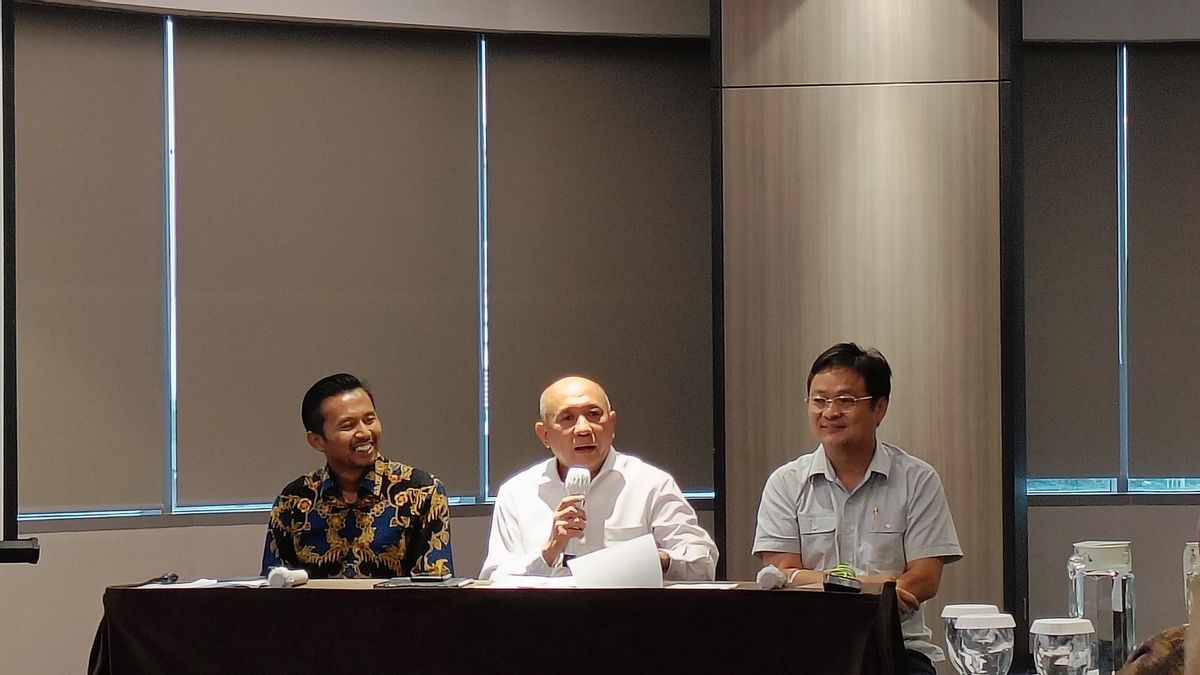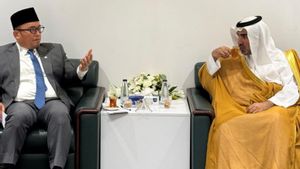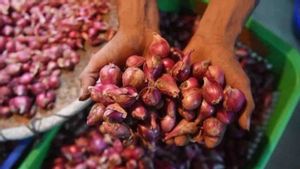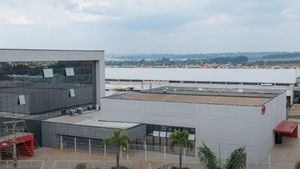JAKARTA - The Indonesian Textile Association (API) noted that as many as 350 thousand imported used clothes entered Indonesia every day. In total throughout 2022, the volume of imported clothing entering Indonesia could reach 25,808 tons.
The general chairman of API Jemmy Kartiwa Sastraatmaja assessed that the effect of importing used clothes on the domestic industry was very large.
"The total of the seven countries is 25,808 tons. If converted by one kilogram, it can be five pieces of clothes. If we distribute it, it falls 70 tons per day multiplied by five pcs per day, meaning 350 thousand pieces of clothes per day, it can move how much workforce," he said at a press conference in Jakarta, Friday, March 31.
The volume in 2022 is dominated by Malaysia with a total import of 24,544 tons, while the rest is followed by South Korea and China, which amounted to 588 tons and 358 tons, respectively.
Then, there is Taiwan with a total of 188 thousand tons, Japan 92 tons, and Thailand 38 tons.
In 2021, the volume of imported clothing that is included is more, reaching 27 thousand tons and in 2020 the total is 24 thousand tons.
Regarding the volume of used clothing entering Indonesia from Malaysia, said Jeremy, there is a very large difference between data held by the Central Statistics Agency (BPS) and data held by similar institutions in Malaysia, namely Trademaps.
BPS noted that the import volume of used clothing from Malaysia to Indonesia was only 1.65 tons throughout 2022. Meanwhile, Trademaps data noted that Malaysia's exports to Indonesia reached 24,544 tons, so there was a difference of 24,542 tons.
Likewise with data in 2021 and 2020, the difference in succession reached 25,322 tons and 22,840 tons. "That's why it's called illegal because Indonesia is not recorded, (including) smuggling," said Jemmy.
Therefore, continued Jemmy, his party fully supports the steps taken by the Indonesian government which prohibits imports of used clothes.
"Domino has a very large effect. If these used clothes can be stopped and substituted with MSME friends, how many million jobs can be produced from replacing illegal used clothes," he said.
Furthermore, Jemmy asked the government to continue to take preventive and law enforcement measures on illegal import regulations and provide opportunities for domestic industries, especially SMEs, to contribute to perfecting regulations in the future in order to increase the climate of the TPT sector's integration (textiles and textile products) sector.
Selain itu, Jemmy menyebut, pihaknya juga siap melakukan substitution produk yang sebelumnya dijual oleh pedagang pakaian bekas, termasuk satunya membuka kesempatan bekerjasama dengan industri TPT level IKM dan besar untuk memaksimalkan pasar domestik produk-product garmen.
"MSME traders who were previously in the business of buying and selling imported used clothes will be facilitated and fostered to cooperate with textile and domestically arranged IKM producers," he concluded.
The English, Chinese, Japanese, Arabic, and French versions are automatically generated by the AI. So there may still be inaccuracies in translating, please always see Indonesian as our main language. (system supported by DigitalSiber.id)












